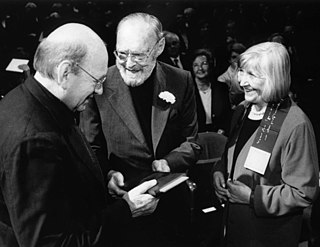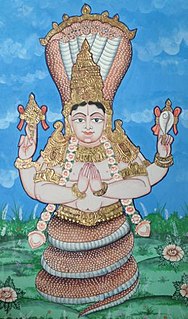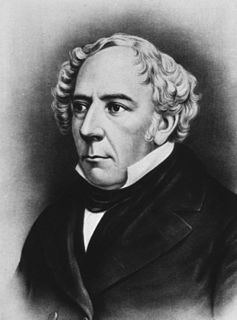A Quote by Michel Foucault
Thought is not what inhabits a certain conduct and gives it its meaning; rather, it is what allows one to step back from this way of acting or reacting, to present it to oneself as an object of thought and to question it as to its meaning, its conditions, and its goals. Thought is freedom in relation to what one does, the motion by which one detaches from it, establishes it as an object, and reflects on it as a problem.
Related Quotes
By "essence" I understand a universal, of any degree of complexity and definition, which may be given immediately, whether to sense or to thought.... This object of pure sense or pure thought, with no belief superadded, an object inwardly complete and individual, but without external relations or physical status, is what I call an essence.
We are resolved to protect individual freedom of belief. This freedom must include the child as well as the parent. The freedom for which we stand is not freedom of belief as we please,... not freedom to evade responsibility, ...but freedom to be honest in speech and action, freedom to respect one's own integrity of thought and feeling, freedom to question, to investigate, to try, to understand life and the universe in which life abounds, freedom to search anywhere and everywhere to find the meaning of Being, freedom to experiment with new ways of living that seem better than the old.
The conditions of a true critique and a true creation are the same: the destruction of an image of thought which presupposes itself and the genesis of the act of thinking in thought itself. Something in the world forces us to think. This something is an object not of recognition but of a fundamental encounter
One great aim of revision is to cut out. In the exuberance of composition it is natural to throw in - as one does in speaking - a number of small words that add nothing to meaning but keep up the flow and rhythm of thought. In writing, not only does this surplusage not add to meaning, it subtracts from it. Read and revise, reread and revise, keeping reading and revising until your text seems adequate to your thought.
Thought as such… is an act of negation, of resistance to that which is forced upon it; this is what thought has inherited from its archetype, the relation between labor and material. Today, when ideologues tend more than ever to encourage thought to be positive, they cleverly note that positivity runs precisely counter to thought, and that it takes friendly persuasion by social authority to accustom thought to positivity.
So much of your present experience is based on your previous thought. Thought leads to experience, which leads to thought, which leads to experience. This can produce constant joy when the Sponsoring Thought is joyous. It can, and does, produce continual hell when the Sponsoring Thought is hellatious.








































